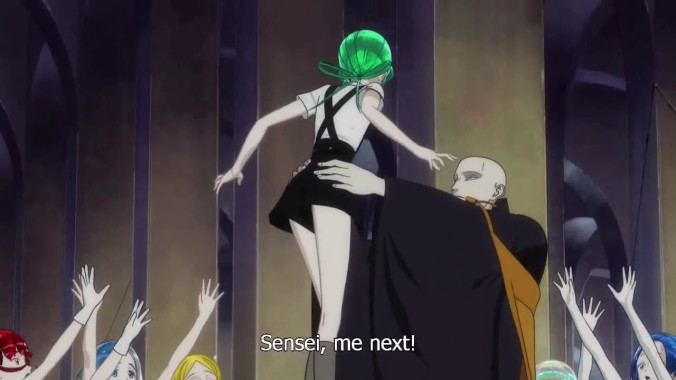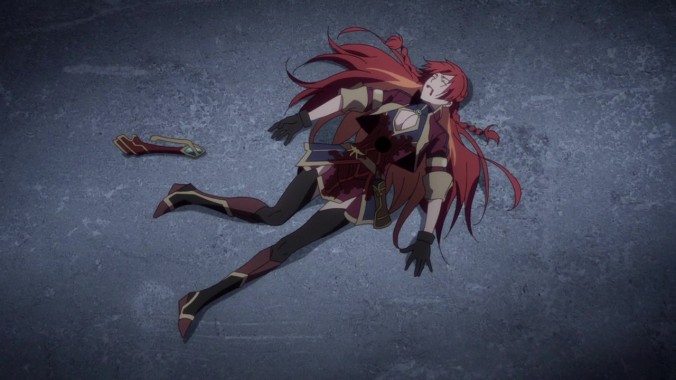Management: This essay is meant to be less of a review and more of analysis of the show being examined. It contains plot spoilers for the Angels of Death anime.

There’s a number of provocative tropes attached to late-night and OVA-release anime. They’re over-generalizations, to be sure, but enough instances of these tropes were enough to leave impressions, however unfair. To cite one example, back in the day, late-night and OVA-release anime had a gratuitous reputation for sexuality and violence. Some producers were willing to give creators chances on edgier ideas, and some creators obliged their edgier indulgences with fewer censorship fears. Even as graphic displays of milky and crimson fluids lack its former cultural weight because of newer genre and aesthetic trends, the older patterns still attract popular followings. Whether because spectacle remains exciting or nostalgia runs strong, contemporary anime still exploit the legacies left behind by these older tropes. To argue one example, the more recent Goblin Slayer is a fantasy-isekai anime that employs the spectacles and threats of yesteryear’s physical and sexual violence. Some newer anime, however, utilize these older tropes as springboards for different kinds of stories. For Angels of Death, it’s a horror setting that’s less about slasher scares and more about why life is unfair.
Mind you, life is probably unfair for many if not most conventional horror story protagonists, but the question of unfairness being posed Angels of Death is meant to be more existentialist than immediate. Angels of Death begins somewhat conventionally: a damsel named Rachel Gardner finds herself trapped in a labyrinthine enclosure, becomes frightened and distressed by her surroundings in a predictable fashion, and is later chased down by a murderer named Issac Foster. And then there’s an early twist. Our damsel regains her memories and rather abruptly pleads to her assailant to kill her, to kill her now (or at least soon), and in monotone, no less. We get to know the both of them, Rachel and Issac, and we come to see they have some tragic things in common. Being born in broken families, being raised in shitty conditions, these tragic circumstances produce a search in a reawakened Rachel for whom these descriptions of “broke” and “shit” describe to a tee: Why is my life shitty? Why does the world suck? Is there something behind my suffering? Does the fault originate from me, or is is there really no one else to blame? How do we live with ourselves? How can we? In its own clunky way, Angels of Death interrogates people’s desperation for a reason to the suffering and a escape from it. In Rachel and others, it interrogates their desire for a God.


